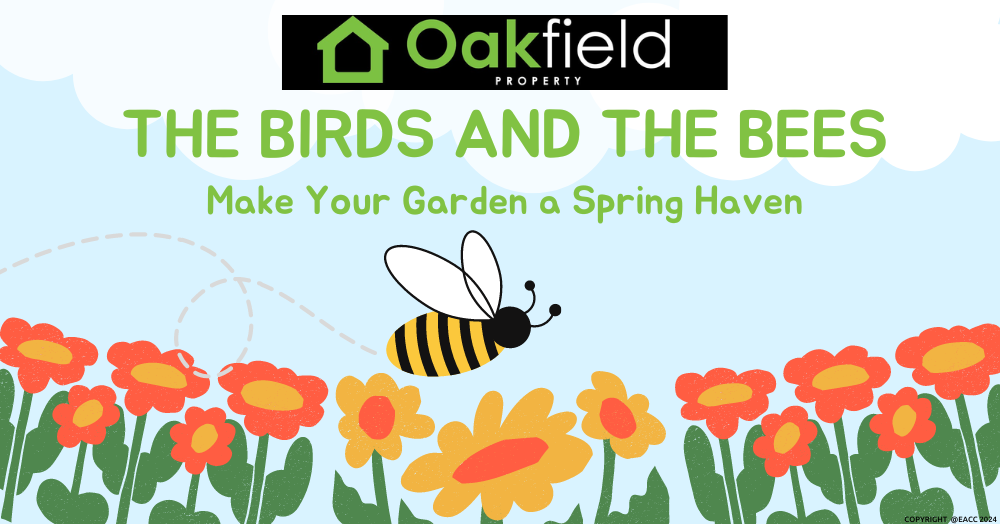
Transform Your Flintshire Garden: Pollinator Paradise Awaits
As winter fades, it’s time to prepare your garden for spring, turning it into a perfect spot for birds and bees. These critters are not just fun to watch but essential for keeping your garden vibrant and helping local wildlife thrive. Here are six simple tips to make your garden the place to be for these helpful visitors.
Choose local plants: Stick to plants that are native to our area. They’re already adapted to the climate, and local pollinators love them. Lavender, foxgloves and wildflowers are excellent choices, providing year-round food.
Add a water spot: A birdbath or a shallow dish with pebbles and water makes a great pit-stop for thirsty bees, butterflies and birds. It’s a small addition that can make a big difference.
Say no to pesticides: Chemicals can harm the very guests you’re trying to attract. Go for natural ways to keep pests at bay, like companion planting or encouraging predators like ladybirds. It’s safer for pets and kids, too.
Build homes: From birdhouses to bee hotels, give these creatures a place to rest or nest in your garden. You can also leave some areas a bit wild to provide natural shelter.
Offer varied habitats: A mix of trees, shrubs and different types of flowers caters to various needs, from food to nesting places. Adding structures like trellises for climbing plants can spice things up.
Use bright colours: Vibrant flowers attract pollinators, so dot your garden with reds, yellows, purples and blues. Not only will it look gorgeous, but it’ll also be buzzing with activity.
Why bother?
Encouraging pollinators in your garden helps plants reproduce, giving you more fruits and flowers. Plus, it supports biodiversity, keeping our environment healthy. Follow these tips, and you’ll enjoy a beautiful garden AND contribute to a thriving, sustainable ecosystem.
Thanks for reading.